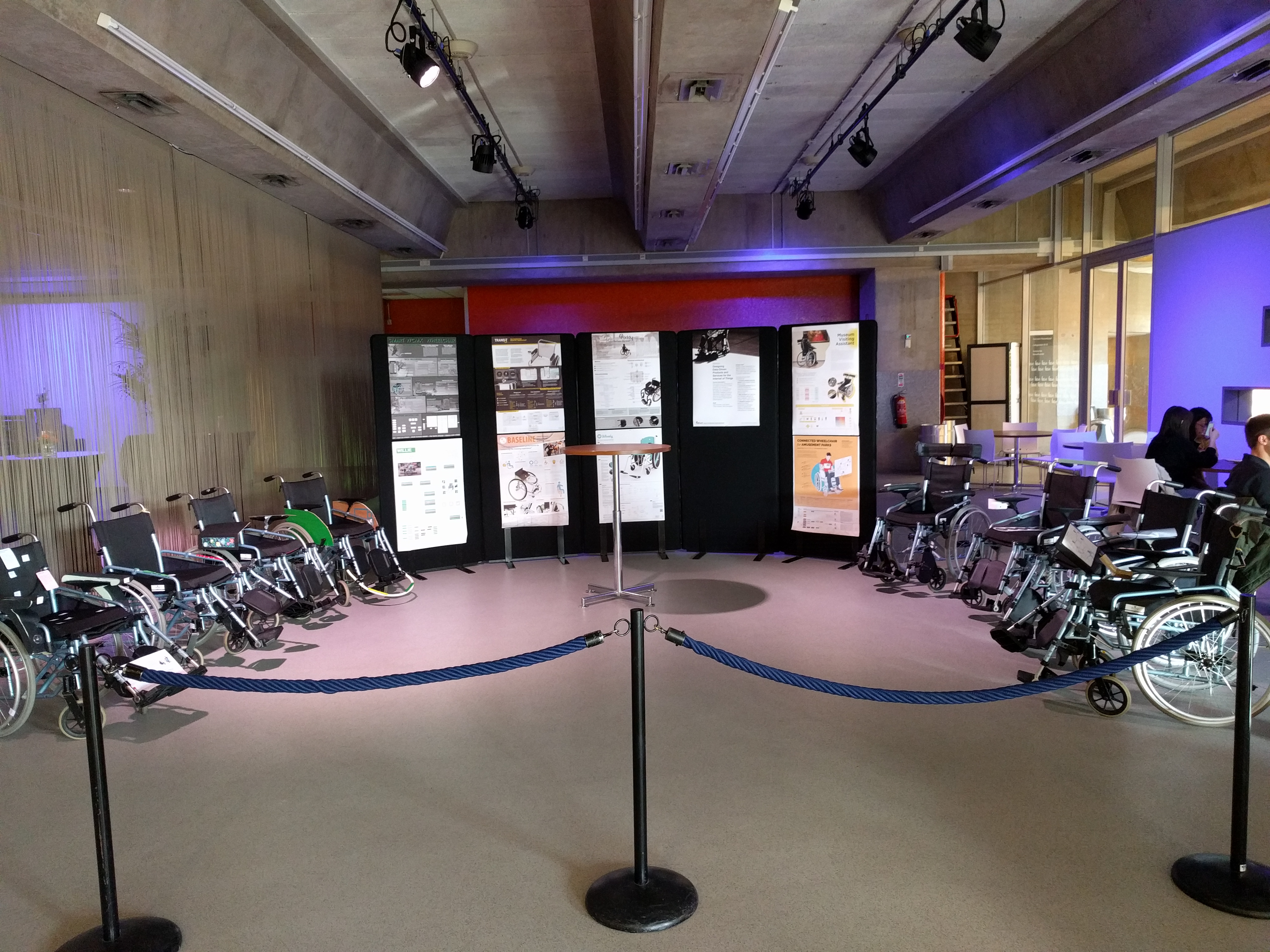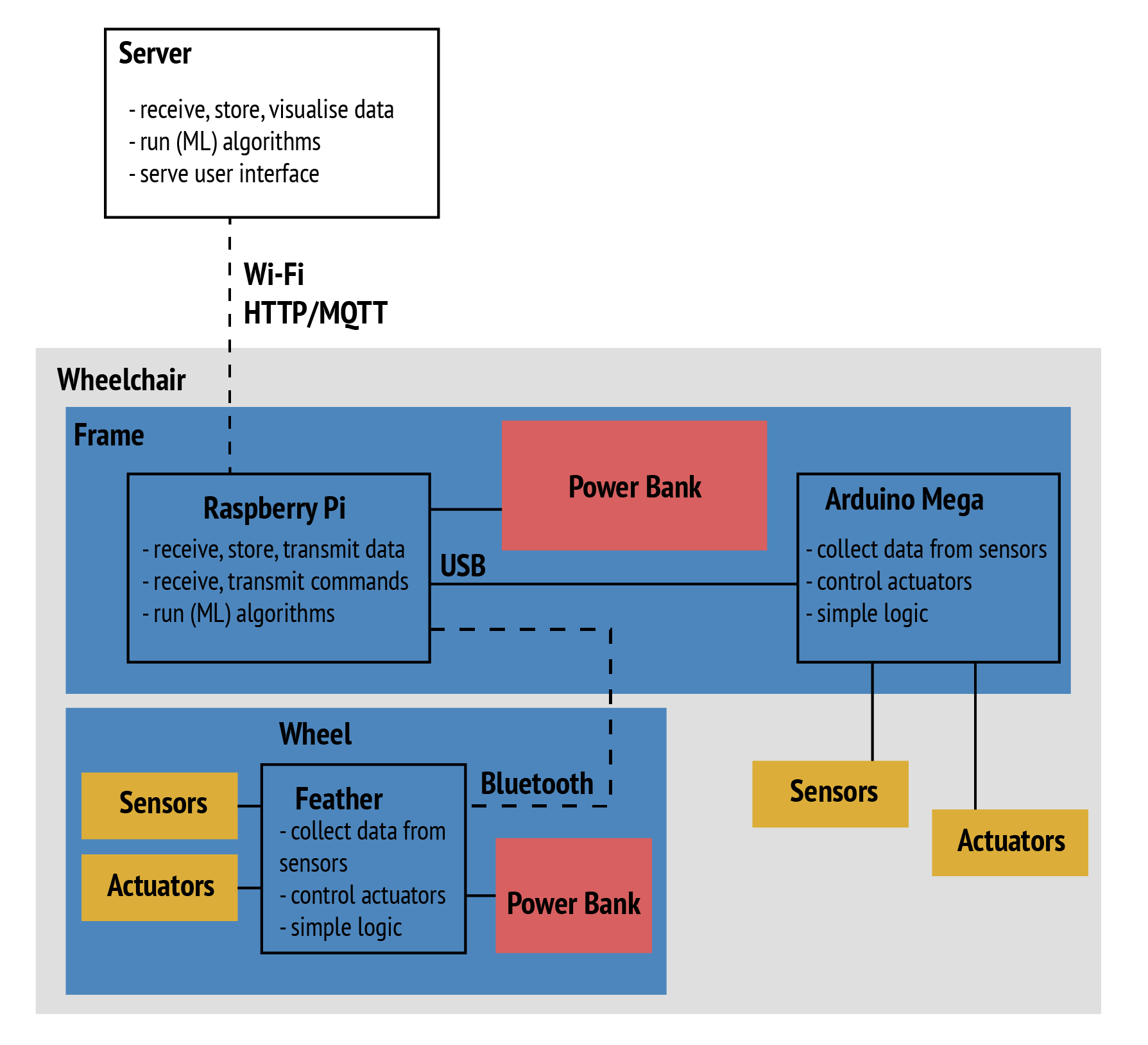Wheelchair Design Platform is a repository that contains some resources to help designers and developers speak the same language, and work together towards addressing relevant challenges for wheelchair users. It is a collection of workshop materials, code examples and also a compilation of resources to foster a prospering research and design community around wheelchair users.

Workshops
- Getting started
- Workshop 1: Building an Internet-Connected Wheelchair
- Workshop 2: Integrating and Visualising Sensor-Based Data
- Workshop 3: Developing Algorithms and Controlling Actuators
- Workshop 4: Developing and Conducting a Data Collection Campaign
- Workshop 5: Implementing a Machine Learning Pipeline
- Workshop 6: Developing a Product Analytics Dashboard
Resources
-
This platform uses two programming languages, Python on computers and C on micro-controllers. While descriptions and examples of code should help you get started, you can find some additional resources here.
-
Documentation of your project is key, here are some tips and examples.
Main Components
**Disclaimer:** the design of this platform focuses on flexibility and technology exploration rather than optimization.
The main design includes a Raspberry Pi 3 and an Arduino Mega 2560 on the wheelchair frame.
The Arduino Mega is the micro-controller of the platform. Fixed on the main frame of the wheelchair, it can collect data from sensors (e.g. force sensors, accelerometers), and trigger actions from actuators (e.g. LEDs, vibration motors).
More on the Arduino Mega can be found here.
Raspberry Pi is a small computer. It is also fixed to the main frame of the wheelchair, where it can:
- interact with the Arduino Mega via USB to receive data and transmit commands;
- interact with the Internet to transmit commands and receive data;
- store data locally in files;
- run (machine learning) algorithms.
More on the Raspberry Pi can be found here.
These components fit together as shown on the following diagram. A large powerbank powers the Raspberry Pi. The Arduino Mega communicates and receives power from the Raspberry Pi via USB. A Feather (Arduino-like development board) on the wheel connects to the Raspberry Pi via Bluetooth to sense and actuate from the wheel.

List of suggested components:
On the frame:
- 1 Raspberry Pi 3B+;
- 1 SD card (Some come directly with NOOBS installed);
- 1 Arduino Mega;
- 1 Large power bank;
- 1 large breadboard;
- 1 USB cable A/micro (Powerbank to Raspberry Pi);
- 1 USB cable A/B (Raspberry Pi to Arduino Mega).
On the wheel:
- 1 Feather 32u4 (Bluetooth enabled);
- 1 small power bank;
- 1 small breadboard;
- 1 USB cable A/B (power bank to Arduino Uno).
Contact and Existing projects
- The hiking wheelchair
- The EDU wheelchair
- Weelchair tracking for basketball players
- Disco Wheelchair
- Wheelchair Madness 2222
- Who is sitting?
- Magic Wheelchair
- Yoga Wheelchair
Feel free to contact us at jacky@datacentricdesign.org. We welcome feedback, pull requests or links to your project.